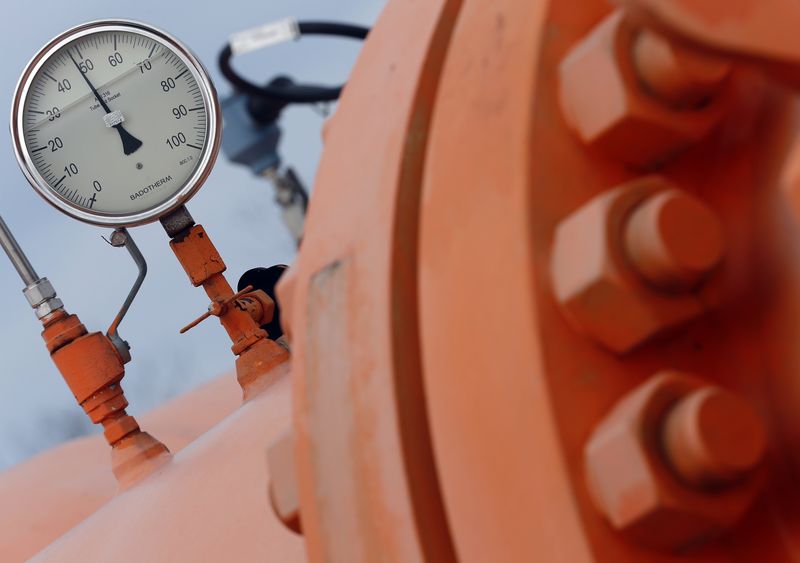By Krisztina Than and Marek Strzelecki
BUDAPEST (Reuters) -Hungary upped the stakes in talks about European Union oil sanctions on Wednesday, saying a deal was out of reach until Brussels offers a "solution" measured in hundreds of millions of dollars to replace Russian oil in the Hungarian economy.
Foreign Minister Peter Szijjarto said on his Facebook (NASDAQ:FB) page that there was still no acceptable proposal in sight. He also said Russian shipments via pipelines should be exempted from any oil embargo that should only apply to deliveries by sea.
That would benefit Hungarian group MOL, which is making hefty profits as its refineries use cheap Russian Urals. The Urals-Brent price difference has widened to around $34-$35 per barrel by now.
This has also helped MOL cover losses caused by the Hungarian government's price cap on fuel prices introduced last year, which helped Prime Minister Viktor Orban win elections in April.
Szijjarto said Hungary has made it clear to Brussels that it would support oil sanctions only if the Commission proposed a solution to the problems they would create for Hungary.
"We are expecting such a proposal not only concerning the transformation of our refineries which costs hundreds of millions of dollars, not only relating to the capacity increase at the Croatian pipeline which would cost several hundreds of millions of dollars, but also concerning the future of the Hungarian economy," Szijjarto said.
Most other EU countries support banning Russian oil under a new sixth package of sanctions designed to punish Moscow for waging war on Ukraine. Unanimity is required for such a decision, however, with Hungary the most vocal critic and some other eastern European states also against the ban.
Szijjarto said the only way to a deal would be if the EU ban applied to maritime oil shipments only.
European Commission President Ursula von der Leyen has said more work was needed to reach an agreement and she would host a discussion about regional cooperation on oil infrastructure.
The issue is thorny since granting MOL years of derogation and giving financial compensation for refinery upgrades would upset the level playing field.
"MOL and the government are playing in tandem. The game is to use Russian oil longer, which is much more profitable given the differential," said Wojciech Kononczuk, Deputy Director at OSW Centre for Eastern Studies, a think-tank based in Warsaw.
Poland's ambassador to the EU told reporters the talks were difficult as multi-year exemption involved issues of competition and equal status of companies on the common market.
A BOON FOR MOL?
MOL's downstream business model has been built on Russian crude shipped via the the Druzhba pipeline that covers about 65% of the oil Hungary needs. The group said it would take at least 2-4 years and between $500 million and $700 million to fully switch its two refineries in Slovakia and Hungary to alternative crude processing.
"MOL's refineries have been built to process the Russian Export Blend (REB) crude. It is true that MOL can transform its refineries to use alternative crude and MOL has done a lot so far to process up to 35% of non-Russian oil," the company said in a reply to Reuters questions. "To do more we need additional capacity, technological investments and testing time."
"At the moment we have the advantage of the better Ural prices but this is not granted forever."
MOL's refining margins have been boosted by its cheap Russian oil intake and also a jump in its diesel and gasoline crack spreads.
According to MOL's data, its refinery margin rose to $33.7 per barrel in March from $3.4 in February. The company did not publish data for April, saying "current margins do not represent MOL's actual profitability."

Tamas Pletser, an oil sector analyst at Erste Investment said the embargo would hurt MOL's business model but its exposure to the Druzhba pipeline was also a vulnerability.
"If they get the EU funds for the investments, that's a win situation, especially if the Russian shipments can remain in place," he said.